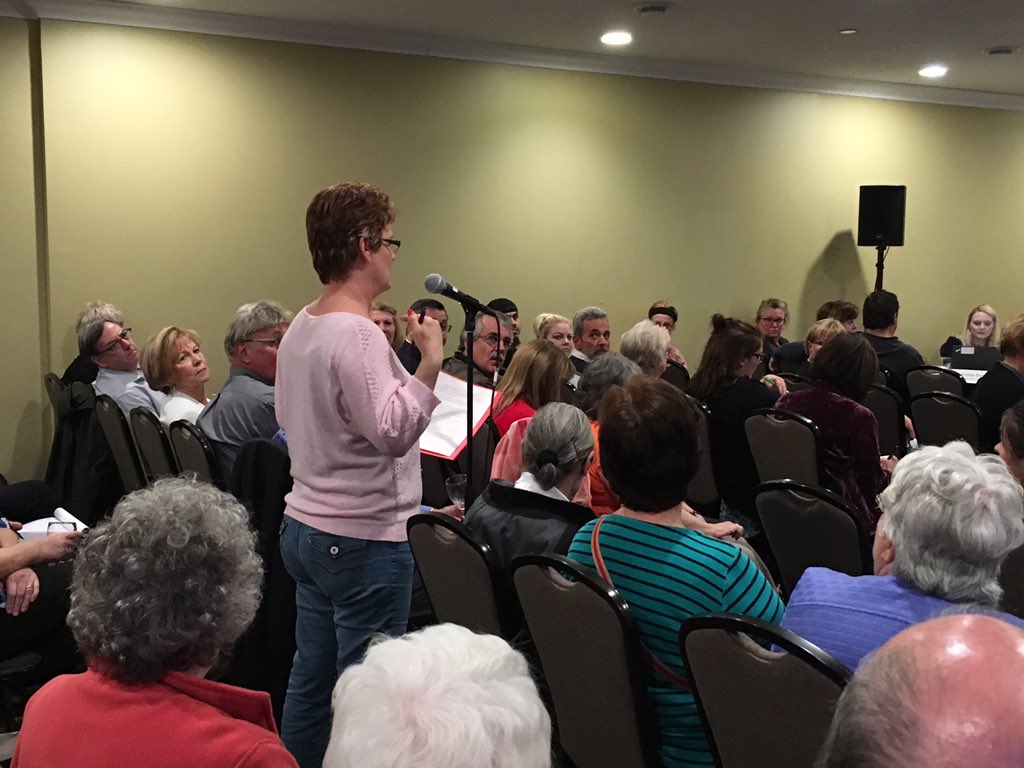The weight of the small room was heavy as around 20 concerned locals unloaded story upon story about troubling experiences at Ontario’s long-term care homes.

“I assumed he was in good hands,” said Wendy Marsh, telling the team tasked with a public inquiry into the facilities of the father she moved into a London nursing home following brain surgery.
She said staff at the home became like part of the family, and they offered weekly updates on her father’s condition, and changes to the treatment of a diabetic ulcer on his foot.
“I went to visit him one day, and my dad was in a reclining wheelchair… he wasn’t able to communicate.”
At the suggestion of a restorative nurse assistant (RNA), Marsh took her father to the hospital where physicians unwrapped his foot.
“The smell was so overwhelming because his foot was black, and the gangrene was going up his leg. They removed his leg above the knee, that day.”
Marsh recounted how the RNA asked her not to tell anyone about the advice she’d given.

Get weekly health news
“That’s pretty disgusting that someone can’t tell me my father is dying, for fear of losing their job.”
Marsh’s disturbing experience was just one of many harrowing tales, shared during Thursday evening’s public meeting at the DoubleTree by Hilton in London.
Prescriptions for medicines unneeded, tired-looking staff and the personal toll of worrying day and night about a loved one in a long-term care home were some of the common themes.
Peggy Clarke urged the public inquiry’s five team members to drop in unannounced at long-term care homes and asked what they’d do if they saw first-hand situations of abuse or neglect.
“We’re not the police,” said lead counsel William McDowell. “If we come across information like that, we’ll direct it to the police.”
Thursday’s meeting and two similar events in Woodstock the day before, were the first opportunities for inquiry commissioner Justice Eileen Gillese to interact with members of the public. Following an introduction, she outlined the inquiry’s goals and what lies within their scope of investigation.
“Public inquiries are not common, and how they operate is not always well understood,” she said.
“A public inquiry operates independently from the government. While the government is expected to co-operate with the inquiry’s investigations, the government doesn’t have a say in how the inquiry’s work is done.”
She went on to explain that the public inquiry into the safety and security of residents in the long-term care homes system will look into both the circumstances and contributing factors that allowed Elizabeth Wettlaufer to murder eight seniors over the span of nearly a decade.
Individual members of the team are tasked with reviewing police investigations, training protocols, the facilities themselves, and the Ministry of Health and Long-Term Care as part of that process.
Community meetings are step one of the process. Participation hearings to be held at the Elgin County Courthouse in St. Thomas in December are step two, which will largely govern who gets to take part in step three: public hearings, which will resemble the judicial court process by allowing participants to call witnesses, and make submissions.
The inquiry comes in response to the eye-opening guilty plea Wettlaufer made in June, to eight charges of first-degree murder, four of attempted murder, and two of aggravated assault.
She’s serving a life sentence with no chance of parole for 25 years.












Comments